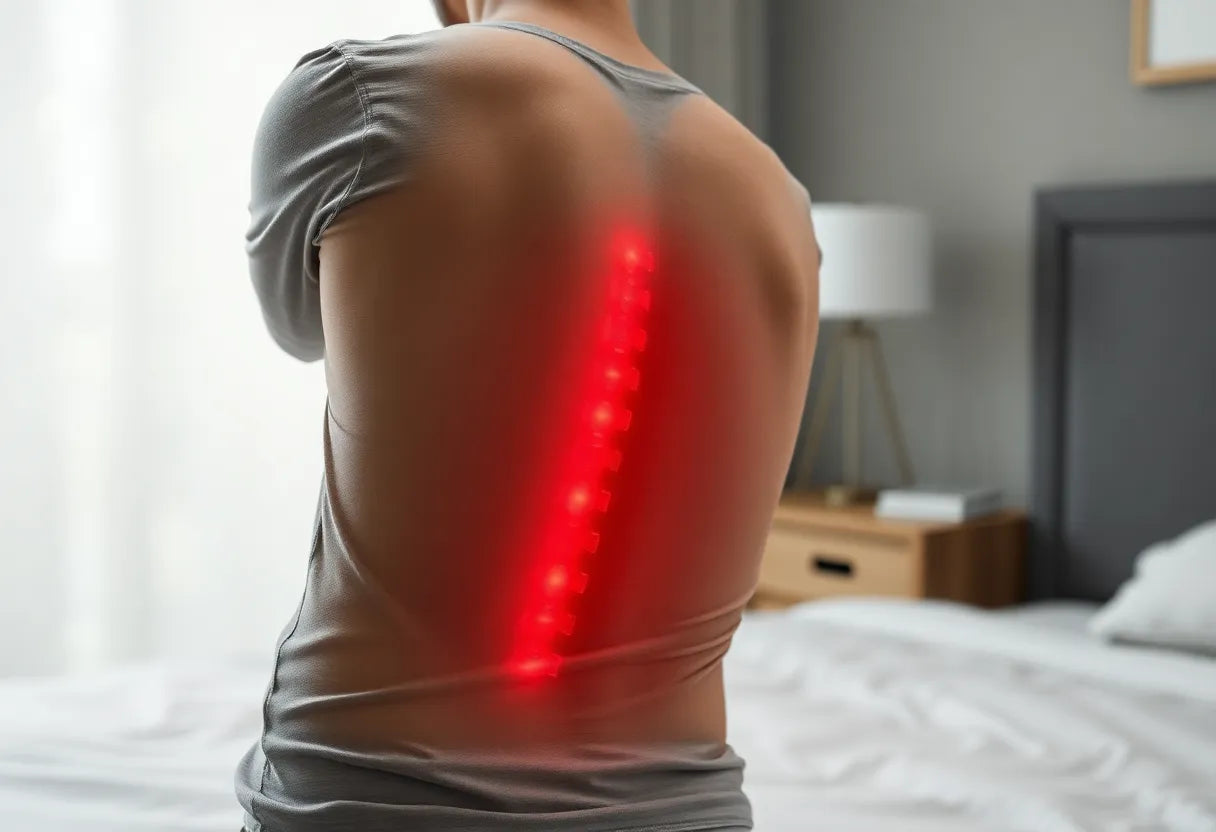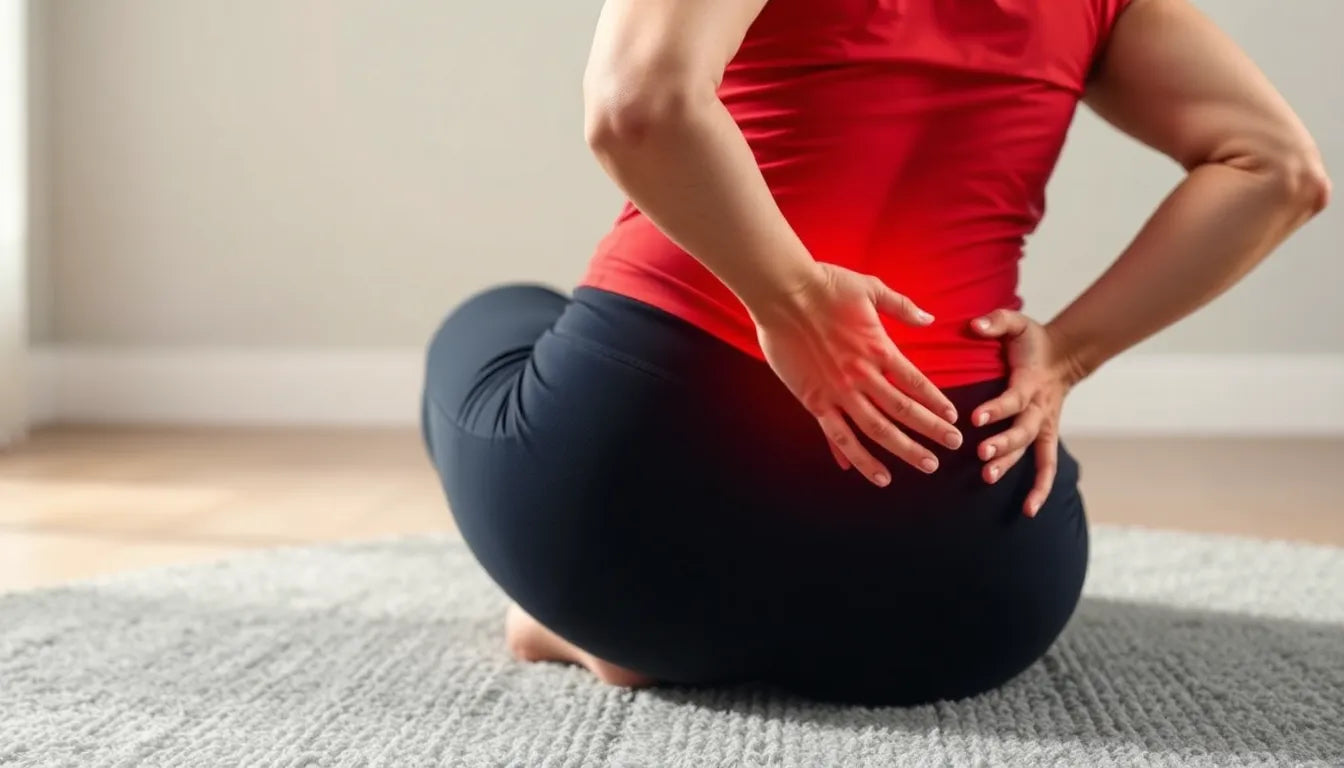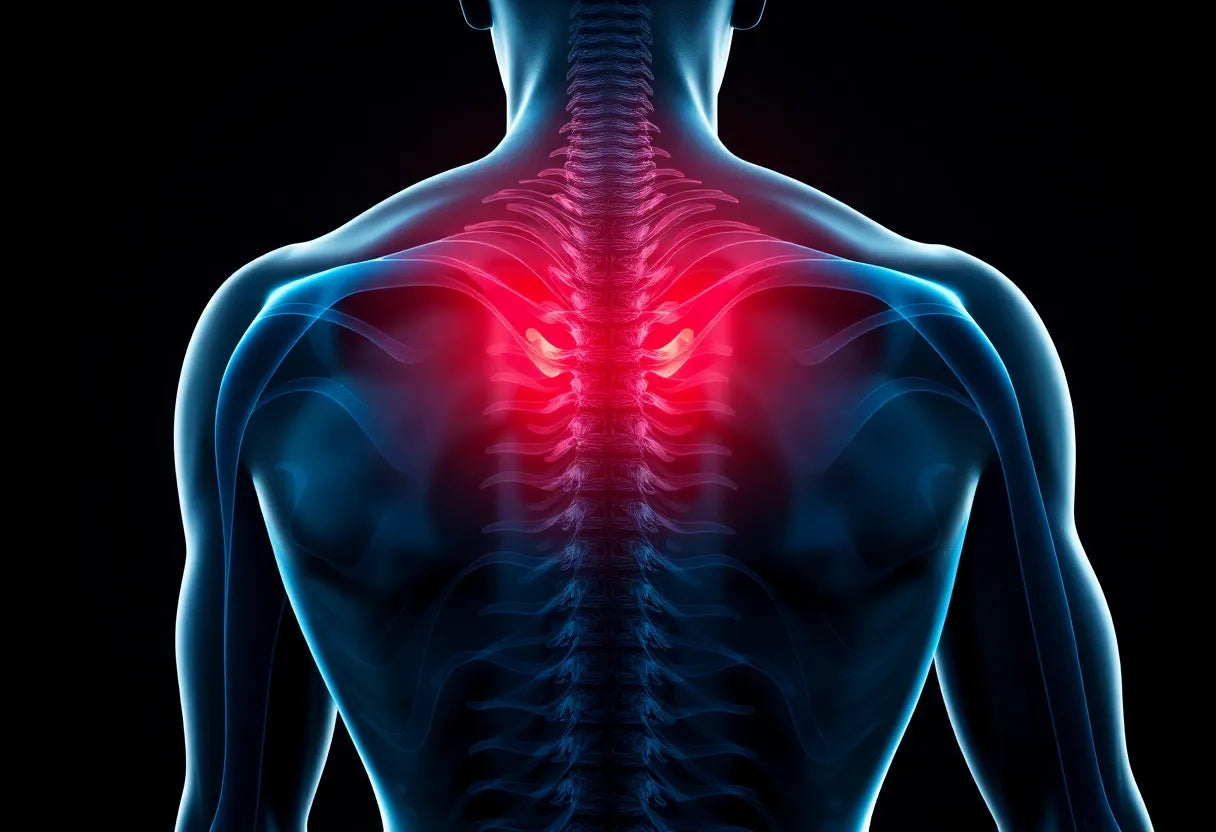Imagine waking up refreshed and pain-free, ready to start your day without the nagging discomfort of back stiffness. For many, this is a daily struggle that can dampen the start of what should be an invigorating morning. Morning back stiffness is a common issue, affecting people across various age groups and lifestyles. This discomfort can range from a mild inconvenience to a debilitating start to the day, impacting productivity, mood, and overall well-being.
Understanding morning stiffness in the back
Morning stiffness in the back is a frequent complaint that doesn't discriminate by age or lifestyle. While some may experience it occasionally, others find it a regular part of their morning routine. The causes of morning back stiffness are varied and can include lifestyle factors such as poor sleep posture or an unsupportive mattress. These seemingly minor issues can lead to significant discomfort over time.
Beyond lifestyle factors, there are more serious concerns that can contribute to morning stiffness. Inflammatory conditions, such as ankylosing spondylitis, can cause persistent stiffness that typically improves as the day progresses. Understanding the underlying causes of your morning stiffness is crucial in addressing the problem effectively and ensuring it doesn’t interfere with your daily life.
The purpose of tackling morning stiffness
The aim of this post is to educate readers on the causes of morning back stiffness, help identify red flags that may indicate more serious conditions, and explore practical solutions. By understanding the root causes and taking proactive steps, you can significantly reduce morning discomfort and improve your quality of life.
Whether it's making adjustments to your sleeping environment, incorporating gentle stretching exercises into your routine, or seeking professional advice for persistent symptoms, there are numerous strategies to tackle morning back stiffness. This blog post will guide you through these options, empowering you to wake up to a pain-free morning and start your day on the right foot.
common causes of morning stiffness in the back
Understanding the origins of morning stiffness in the back can be pivotal in managing and alleviating this discomfort. Several factors contribute to this condition, ranging from lifestyle habits to underlying medical conditions.
lifestyle and ergonomic factors
One of the most prevalent causes of morning back stiffness is poor sleeping posture. Sleeping in positions that strain the spine can lead to muscle tension and discomfort upon waking. Similarly, an unsupportive mattress can exacerbate the problem by failing to provide adequate support to the spine, leading to misalignment and stiffness.
Stress and muscle overuse also play significant roles. High stress levels can cause muscles to tighten, contributing to stiffness and discomfort. Additionally, overusing muscles during the day without proper rest can lead to soreness and stiffness in the morning.
Maintaining good sleep ergonomics is crucial for spinal health. This includes choosing a mattress that supports the natural curves of the spine and adopting sleep positions that minimize strain, such as sleeping on your back with a pillow under your knees or on your side with a pillow between your knees.

Lumbar support belt
Provides support and relief for lower back pain—adjustable and suitable for daily use.
medical and clinical causes
Beyond lifestyle factors, certain medical conditions can lead to morning stiffness. Degenerative disc disease is a common culprit, where the intervertebral discs lose their cushioning ability, leading to pain and stiffness, particularly in the morning.

Men's Posture Shirt™ - Black
Patented shirt that activates muscles and helps relieve back, neck, and shoulder pain.
Inflammatory conditions, such as ankylosing spondylitis, are also significant contributors. This type of arthritis primarily affects the spine, causing inflammation that leads to pain and stiffness. Notably, the stiffness associated with inflammatory conditions tends to improve with activity throughout the day, distinguishing it from other types of back pain.
recognizing clinical red flags
While morning stiffness is often benign, certain symptoms should not be ignored. If stiffness persists for more than 30 to 60 minutes after waking, it may indicate an underlying inflammatory condition. Additionally, if the stiffness is accompanied by neurological symptoms such as numbness or tingling, it is advisable to seek medical evaluation.
Understanding the difference between inflammatory and mechanical pain patterns can also guide when to seek professional help. Inflammatory pain often improves with movement, while mechanical pain may worsen with activity. Recognizing these patterns can help in identifying the root cause of the stiffness and determining the appropriate course of action.
lifestyle modifications and self-management tips
sleep hygiene
Improving sleep hygiene can significantly reduce morning back stiffness. Selecting a supportive mattress and pillow is essential. A medium-firm mattress is often recommended for optimal spinal support, while pillows should support the natural curve of the neck.
Adopting recommended sleeping positions can also alleviate spinal strain. Sleeping on your back with a pillow under your knees or on your side with a cushion between your knees can help maintain proper alignment and reduce stiffness.
daily routine adjustments
Incorporating gentle stretching exercises into your morning routine can help ease stiffness. Simple stretches like the Cat-Cow Pose or a gentle spinal twist can increase flexibility and reduce tension.
Stress management is another crucial aspect. Techniques such as deep breathing, meditation, or yoga can help alleviate muscle tension and reduce the impact of stress on your body.
| sleep position | mattress type | morning stretch |
|---|---|---|
| on back with pillow support | medium-firm | cat-cow pose |
| on side with knee cushion | memory foam | spinal twist |
By understanding the causes and implementing these lifestyle modifications, you can take significant steps toward reducing morning back stiffness and improving your overall quality of life. In the next section, we'll explore expert recommendations and answer common questions to further assist you in managing this condition.
expert recommendations for managing morning back stiffness
When it comes to tackling morning back stiffness, expert advice can provide valuable insights into effective management strategies. Physiotherapists emphasize the importance of maintaining an active lifestyle to support spinal health and flexibility. Regular physical activity helps to strengthen the muscles that support the spine, reducing the likelihood of stiffness and discomfort.
For those experiencing persistent symptoms, professional evaluation is crucial. A physiotherapist can assess your condition and tailor a rehabilitation program that addresses your specific needs. This might include exercises to improve posture, flexibility, and strength, all of which play a significant role in alleviating back stiffness.
Additionally, integrating regular stretching routines into your daily life can be beneficial. Physiotherapists often recommend stretches such as the Cat-Cow Pose, spinal twists, and hamstring stretches to enhance flexibility and reduce tension. These exercises can be easily incorporated into your morning routine, helping to loosen tight muscles and prepare your body for the day ahead.
conclusion: key takeaways for a pain-free morning
Understanding the causes of morning back stiffness and recognizing clinical red flags are essential steps in managing this common issue. By making informed lifestyle changes, such as optimizing your sleeping environment and incorporating regular stretching exercises, you can significantly reduce morning discomfort.
Being proactive in managing your symptoms not only improves your quality of life but also ensures that you start each day on a positive note. Remember, if your symptoms persist or worsen, seeking professional advice is crucial to addressing any underlying issues effectively.
frequently asked questions
What are the most common causes of morning back stiffness?
The most common causes include poor sleeping posture, unsupportive mattresses, degenerative disc disease, and stress. These factors can lead to muscle tension and discomfort upon waking.
When should I be concerned about my morning back pain?
If stiffness lasts more than 30-60 minutes after waking or if you experience neurological symptoms such as numbness or tingling, it is advisable to seek medical evaluation to rule out underlying conditions.
How can I improve my sleep environment to reduce back stiffness?
Improving your sleep environment involves using a supportive mattress, maintaining proper sleeping posture, and considering ergonomic aids like pillows for spinal alignment. These adjustments can significantly reduce morning stiffness.
Are there exercises I can do to alleviate morning stiffness?
Yes, incorporating gentle stretches like the Cat-Cow Pose and spinal twists into your routine can help ease stiffness. Regular physical activity is also beneficial for overall spinal health.
Can stress really contribute to back pain?
Absolutely, stress can lead to muscle tension, which may exacerbate back stiffness. Implementing stress management techniques, such as deep breathing and meditation, can help reduce this tension and improve your overall well-being.
Kilder
- Medical News Today. (2019). "What to know about morning back pain."
- Nurokor. (n.d.). "Fem praktiske tips for å lindre kroniske ryggsmerter."
- Complete Physio. (n.d.). "Woke up with a stiff back? 7 causes and fixes from London Physio."
- Kiropraktorgruppen. (2016). "Akutte ryggsmerter."
- Healthline. (n.d.). "Lower Back Pain in the Morning."
- Skadefri. (n.d.). "Ryggsmerter."
- Cleveland Clinic. (n.d.). "Lower Back Pain in the Morning."
- Helsenorge. (n.d.). "Ryggsmerter."
- Pain and Spine Specialists. (n.d.). "Lower Back Pain in the Morning."
- Den Helse Norge. (n.d.). "Smerter i korsryggen."
- Mayo Clinic. (n.d.). "Ankylosing Spondylitis: Symptoms and Causes."
- Forskning.no. (n.d.). "Hva virker best mot ryggsmerter?"
- Cleveland Clinic. (n.d.). "Back Pain."
- Åssiden Kiropraktorsenter. (n.d.). "Tilbakevennende ryggsmerter."
- NHS. (n.d.). "Ankylosing Spondylitis: Symptoms."
- Oslo Universitetssykehus. (n.d.). "Nasjonale kliniske retningslinjer for korsryggsmerter."
- Hinge Health. (n.d.). "Waking Up with Lower Back Pain."
- Aleris. (n.d.). "Spesifikke ryggsmerter."


















